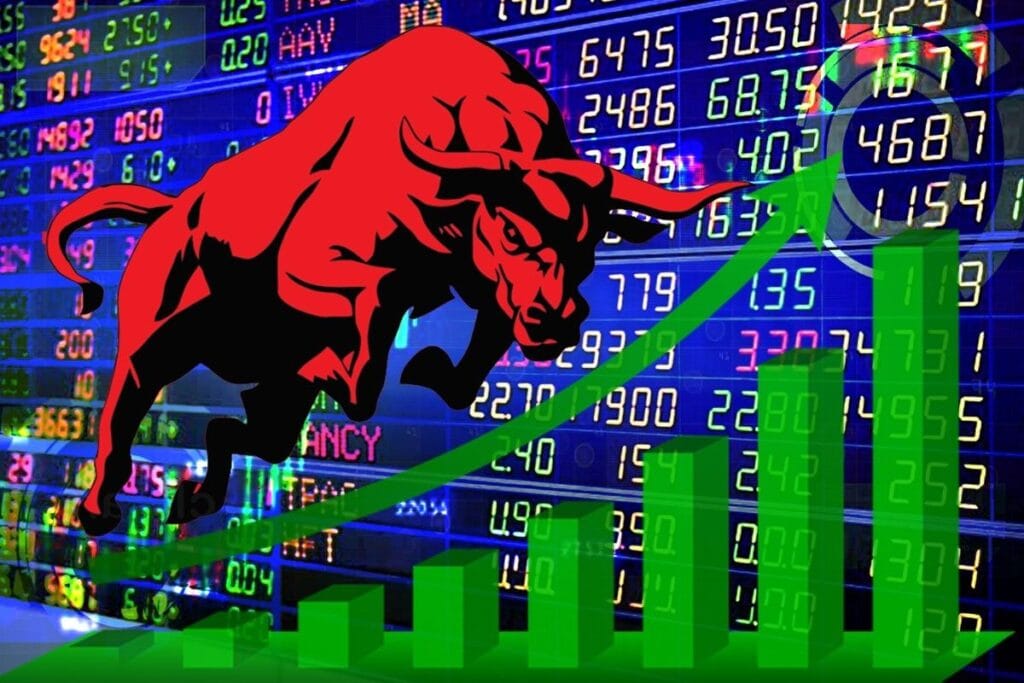Understanding the Share Market
The share market, or stock market, is where people buy and sell shares of companies that are open to the public. Think of shares as little pieces of ownership in a company. When you own shares, you own a bit of that company. The stock market is a place to trade these shares. It helps companies get money to grow and gives investors a chance to make money as those companies succeed.
Getting into the share market can be exciting because it offers a way to build wealth. However, it’s very important to understand how it works. You should know how to earn money, what the risks are, and how losses can happen. Many investors are drawn in by the promise of making good returns, but it’s necessary to balance that excitement with an understanding of risk.

How People Make Money in the Share Market
There are several ways to make money in the share market. It all depends on how you invest, what your risk level is, and your goals for the future. Let’s break down the main ways folks earn money from stocks: capital appreciation, dividends, and trading.
1. Capital Appreciation
Capital appreciation is probably the most common way people profit from the stock market. It simply means the price of your shares goes up over time. When you buy shares, you hope that one day they will be worth more so you can sell them for profit.
For example, if you buy a stock for $100 and it goes up to $150, you can sell it for a profit of $50. Over the long haul, stocks tend to increase in value, especially if investors hang onto them for several years. This long-term approach lets your earnings grow, giving you even more.
2. Dividends
Dividends are like little bonus checks companies pay to their shareholders, made from their profits. Many companies share their earnings with the people who invest in them by offering dividends. If you buy shares in these companies, you can receive regular payments. This can be a nice way to earn cash, especially for retirees looking for steady income. Let’s say a stock pays a 4% annual dividend. This means if you invest $100, you’d earn $4 each year just for holding onto that stock. This is a big win when other investments, like bonds, might not pay as well.

3. Trading Stocks
Some people take a hands-on approach by trading stocks. This means they buy and sell shares often to make money from quick price changes. There are different trading styles, like day trading, swing trading, and momentum trading.
- Day trading is when you trade stocks within the same day. This takes quick thinking and expertise to profit from daily shifts.
- Swing trading involves holding onto stocks for a few days or weeks to take advantage of price changes in the shorter term.
- Momentum trading is about buying stocks that are increasing in price and selling when they start to slow down.
While trading may offer quick returns, it’s also riskier. You need to stay on top of market trends and know how prices move.
4. Index Funds and ETFs
If you want to reduce risks, index funds and exchange-traded funds (ETFs) could be a smart choice. They let many investors pool their money together to buy a variety of stocks. This means you don’t have to pick individual stocks, but you can still benefit from how well the whole market performs.

By investing in these funds, you can own bits of lots of companies, which helps cushion you from losses if one stock doesn’t do well. Over time, these funds generally do well, especially when the economy is growing.
How People Can Lose Money in the Share Market
While you can certainly make money in the stock market, there are also many ways to lose it. Knowing the risks is just as important as understanding how to earn.
1. Market Risk (Systematic Risk)
Market risk means that your investments can lose value because the overall market is in decline. This can happen due to big events like recessions or even natural disasters. For instance, during a financial crisis, many stocks drop in value at the same time. Since this type of risk affects many companies, there’s no way to avoid it completely. However, you can lessen the blow by diversifying. This means spreading your investments across different areas so that if one sector suffers, you won’t lose all your money.
2. Company-Specific Risk (Unsystematic Risk)
Company-specific risk is all about how individual businesses can fail. Sometimes a company might have bad news, or it may not perform as expected, and its stock price falls hard. Factors like management changes, lawsuits, or big product failures can lead to these declines. Luckily, unlike market risk, you can reduce this type of risk through diversification too. By having stocks from many different industries, you can protect your funds if one company struggles.
3. Emotional Investing
It’s easy to let emotions affect your investing. This is especially true for newcomers. Feelings like fear and greed can lead to poor choices. For example, many people panic during market drops and sell their stocks, often at a loss. Others may chase quick gains when a stock is rising, buying at high prices.

One common issue is called fear of missing out (FOMO). This is when investors buy into a stock because they see it rising fast, only to lose later when the price corrects. It’s important to stick with your plan and not buy or sell just because you’re excited or scared.
4. Leverage and Margin Trading
Using leverage can be a double-edged sword. It means borrowing money to buy more stocks, hoping to amplify your returns. While it can help you earn more if your stock does well, it can also lead to huge losses. In margin trading, you borrow cash from a broker to purchase more shares than you can afford. If the stock drops, you might have to sell off assets to cover what you owe. This can hurt your finances badly, sometimes causing you to lose even more than your original investment. (Share Market)
5. Speculative Investing
Speculative investing is risky. It often involves buying stocks that can change prices wildly, hoping to cash in quickly. These stocks can sometimes be driven by trends, not company performance. Investors can face big losses if these speculative stocks fall, especially if they didn’t research properly. While speculation might lead to big wins, it is a high-risk strategy and not for everyone.
Warnings and Best Practices for Stock Market Investing
Investing is serious business, and while you can make money, you can also lose it. Here are some simple tips and warnings to keep in mind:
1. Don’t Invest Money You Can’t Afford to Lose
Only use money that you can afford to lose. The markets can be unpredictable, and you need to make sure you won’t be hurt if things go south.

2. Avoid Get-Rich-Quick Schemes
The stock market is not a place for quick money. Be cautious about any claims that promise you fast profits. Real success often takes time and careful planning.
3. Diversify Your Portfolio
Don’t put all your money into one stock or area. Spread out your investments. This helps to reduce the loss if one part doesn’t do well.
4. Stay Informed and Educated
Keep learning about the market! Knowing what’s happening in the economy and with individual companies will help you make better decisions.
5. Avoid Emotional Investing
Stay level-headed. Don’t let fear or greed dictate your choices. Stick to your plan and avoid making rushed moves based on what’s happening in the moment.
6. Seek Professional Advice
If you’re unsure where to start, think about talking to a financial advisor. They can help you figure out how to invest based on your goals and comfort with risk.

Conclusion
Investing in the share market can be a great way to build wealth. Still, it has its share of risks. It’s crucial to understand how to earn money, the different ways to profit, and the possible pitfalls. By managing emotional decisions, diversifying, and making informed choices, you can improve your chances of success. Just remember, while the market can be generous, it also requires careful planning and respect for the risks involved.



